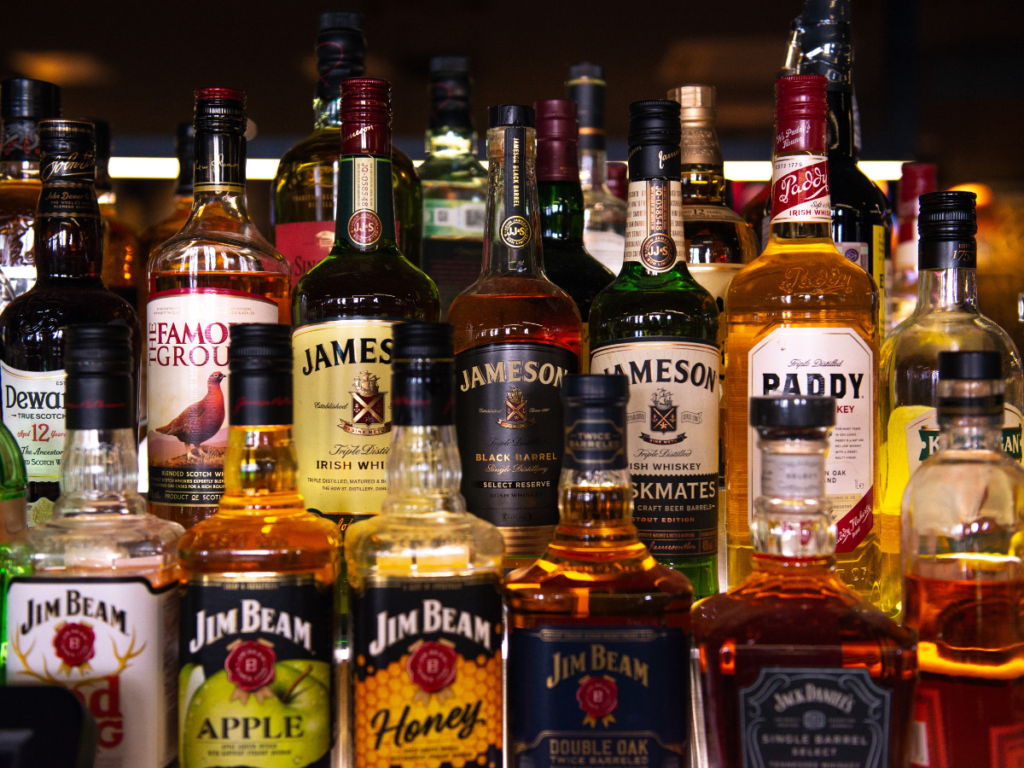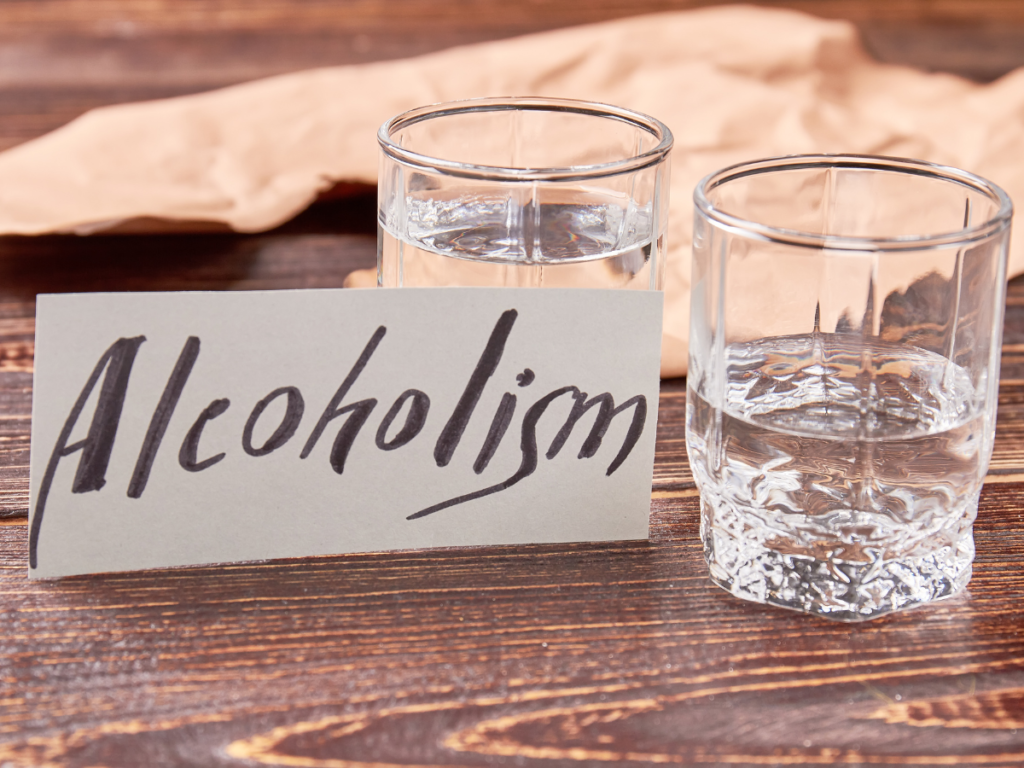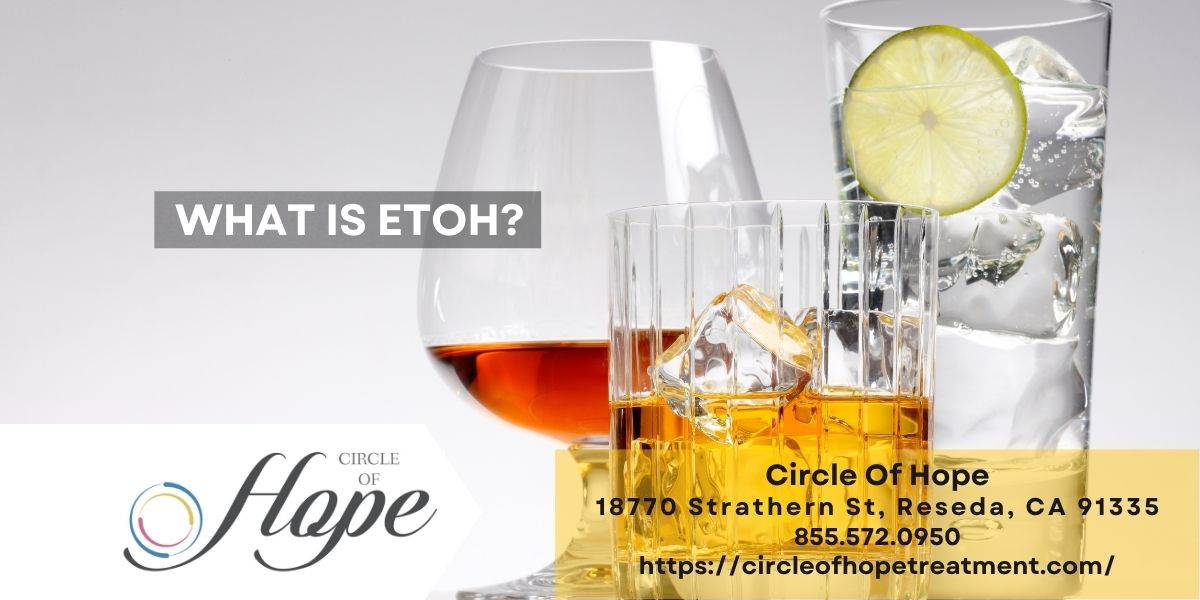What is ETOH
ETOH is a drug that is frequently abused in the United States. It stands for ethanol, and it is a psychoactive drug that may be found in many different drinks, such as wine, beer, and liquor. ETOH has the potential to be addictive and detrimental to one’s health, therefore it’s critical to understand about it. We’ll go through everything you need to know about ETOH addiction and abuse in this article. We’ll also discuss detox and therapy choices for individuals who are struggling with addiction.
The ability to understand Alcohol Use Disorder and Addiction is crucial in order to identify problem behaviors. However, before reading further, it’s critical to understand the physical effects of this drug so that we may effectively treat those caught up in its grasp as well as prevent ourselves from getting hooked on them for a lengthy time.
Ethyl Alcohol and its uses
Ethyl alcohol, often known as alcohol, is a clear, colorless liquid with an distinctive alcoholic odor. Ethanol has been used in religious rituals and for socializing since antiquity. However, it was not until the late 1800s that ethyl alcohol became popular as a narcotic. People began drinking it to enjoy its intoxicating qualities.
Ethyl alcohol is a central nervous system depressant. In modest dosages, it has a soothing effect and is a moderate sedative in higher dosages. High dosages can cause slurred speech, coordination problems, and dizziness. Ethyl alcohol is metabolized by the liver and eliminated by the kidneys, where it is transformed into acetaldehyde.

Alcoholic Beverages
There are many sorts of alcoholic beverages, each with its own unique mix of ethanol and other components. Beer, wine, and spirits all have varying amounts of ethanol. A conventional drink in the United States is defined as containing 0.54 ounces of pure ethyl alcohol.
Beer, the world’s most popular alcoholic beverage, has a long and illustrious history. Beer is made from malted barley, which is ground to germinate the seeds before being dried and stored for later use in brewing. Hops are used to give beer its distinctive flavor while water helps it be drinkable. It’s usually comprised of around four percent ethanol by volume.
Distilled spirits, such as vodka, whiskey, rum, and gin, are alcoholic beverages that may be produced from them. Depending on the type of liquor, the ethanol content ranges from 30% to 55%. The distillation of alcohol is followed by the production of liquor.
To distill alcohol, first, boil the mixtures to eliminate any impurities that may be present. To make pure forms of spirits like gin (which does not contain water), heat ingredients such as vodka, whiskey, or rum until they reach a full boil and then purify them using boiling away all contaminants. Flavorings such as fruit juice are sometimes used in the final phase before distribution.

Alcohol is an intoxicating drug that may be obtained by drinking alcoholic beverages. Because some drinks might have higher amounts of ethanol than others, people must be careful when choosing them. Beer, for example, contains approximately four percent ethanol by volume, whereas spirits can contain up to 55% ethanol.
What drinking alcohol does to your body
Once it enters the circulation, ethanol has an immediate impact on the body. It lowers blood pressure and heart rate, which may cause dizziness and even fainting. The medication also impairs cognitive function and judgment, posing a risk of dangerous behaviors. Intoxicated individuals may not be able to make good judgments or respond quickly in emergency circumstances.
Ethanol is toxic to the respiratory system as well. It may make you breathe more slowly or even cause you to cease breathing. This can be deadly, especially if the user has been consuming a lot of alcohol for an extended amount of time. Chronic ethanol abuse can also induce significant liver damage.
The physiological effects of ethanol are just the beginning. Alcoholics may experience physical, as well as psychological, changes as a result of their drinking. These might include feelings of delight, joy, or sadness. They may also become quarrelsome or combative after consuming alcohol
Alcohol has a variety of health effects. It can cause the heart rate and blood pressure to decrease, as well as impair cognitive function and judgment. It can also harm the respiratory system. Chronic alcohol abuse can lead to significant medical issues.
Pure alcohol is very harmful to the body. It can cause liver cirrhosis, pancreatitis, and various types of cancer over time. It can also harm the brain and central nervous system.

There is also a danger of alcohol dependency, which is when a person drinks in quantities that are hazardous to their health or inhibits their daily activities.
Finally, ethanol is a potent drug that can be habit-forming and addictive. People who use ethanol may become addicted to it. Alcohol withdrawal is unpleasant and occasionally deadly, and it should only be carried out under the care of a medical professional.
Before people decide to drink alcohol, they should be aware of these concerns.
What is Blood Alcohol Concentration or percentage?
What is Blood Alcohol Concentration or percentage?
The amount of ethanol in your blood is referred to as your blood alcohol concentration or BAC. The higher your BAC, the more likely you are to be intoxicated. In the United States, the legal driving limit is .08 percent, but it’s crucial to note that even a BAC of .02 percent can affect your ability to drive. How is Blood Alcohol Concentration or percentage Calculated?
Your blood alcohol concentration is determined by dividing your weight in kilograms by the number of liters of blood in your body. Then, multiply that number by the percentage of ethanol in your drink to get your BAC. For example, if you weigh 68 kg (150 pounds) and down a 12-ounce beer with a 5% ethanol content, your BAC would be .016.
What Factors Affect Blood Alcohol Concentration or percentage?
What Factors Affect Blood Alcohol Concentration or percentage?
There are a variety of things that can influence your blood alcohol concentration. The most important ones are the amount of ethanol in your drink, your weight, and the length of time you’ve been drinking. Other factors that impact BAC include how fast you consume, whether or not you’re eating while you drink, and whether you’re a man or woman.
Alcohol Abuse
Alcoholism is a disease that affects the brain’s reward and pleasure centers, resulting in an inability to control one’s intake or stop behaving recklessly. Binge drinking is a common type of alcohol abuse, it can have significant health consequences. People who misuse alcohol may also have mental health issues such as sadness or anxiety.
An individual enters the state of being an alcoholic when he or she consumes more alcohol than is good for him or her under all circumstances, including those that others wouldn’t expect (such as at parties). Mood swings, blackouts, desires, and denial are some of the symptoms associated with alcoholism. It can also induce a slew of health issues including liver cirrhosis, pancreatitis, and various forms of cancer.
How Does Blood Alcohol Concentration or percentage Affect Driving?
How Does Blood Alcohol Concentration or percentage Affect Driving?
BAC is a key aspect in determining your driving ability. The greater your BAC, the more impaired you will be. You may be less able to see clearly, have difficulties steering your car, and react quickly to unexpected events. Even if your BAC is under the legal limit, you can still get arrested for driving while intoxicated.
Can Blood Alcohol Concentration or percentage be Dangerous?
Can Blood Alcohol Concentration or percentage be Dangerous?
Yes, drinking too much alcohol is unhealthy. A high BAC can result in alcohol poisoning, unconsciousness, or even death. It can also raise your risk of being involved in a vehicle accident.
What is Alcohol Withdrawal?
What is Alcohol Withdrawal?
When a person addicted to ethanol quits drinking, their body starts to undergo the processes that are involved in alcohol withdrawal. Alcohol withdrawal is an unpleasant and potentially harmful experience. It should be carried out under the care of a physician.
Yes, drinking too much alcohol is unhealthy. A high BAC can result in alcohol poisoning, unconsciousness, or even death. It can also raise your risk of being involved in a vehicle accident.
What are the Withdrawal Symptoms?
What are the Withdrawal Symptoms?
Shaking, sweating, nausea and vomiting, headaches, and difficulty sleeping are all typical symptoms of alcohol withdrawal. People may experience epileptic fits or hallucinations in extreme situations.
How is Alcohol Withdrawal Treated?
How is Alcohol Withdrawal Treated?
Alcohol withdrawal is generally treated with the medicine chlordiazepoxide or Librium. This drug aids in the alleviation of symptoms and the prevention of seizures. Other medicines may be used to treat alcohol withdrawal if necessary.
Is Alcohol Withdrawal Dangerous?
Is Alcohol Withdrawal Dangerous?
Alcohol withdrawal can be harmful, especially if it is not treated correctly. Alcohol withdrawal can cause seizures and hallucinations. People may die from alcohol withdrawal in severe situations.
Can Alcohol Withdrawal Lead to relapse?
Can Alcohol Withdrawal Lead to relapse?
Yes, alcohol withdrawal can lead to addiction relapse in individuals who have been addicted to ethanol. It’s critical to get help for alcohol detoxification if you’re addicted so you don’t risk relapse.
Is There a Cure for Alcoholism?
Is There a Cure for Alcoholism?
There is no cure for alcoholism, but it may be treated to help people stop drinking and live a healthy life. Treatment generally includes psychotherapy as well as medication.
Are There Different Types of Alcoholism?
Are There Different Types of Alcoholism?
There are several forms of addiction, but all of them involve a dependency on ethanol. Some people are more likely to become addicted to alcohol than others, but anyone can become dependent on drinking enough.
What is Detoxification?
What is Detoxification?
Detoxification is the process of expelling poisons from the body. Detoxification aids in the removal of pollutants accumulated in the system as a result of alcohol consumption. Detoxification may be carried out at home with medications given by a doctor or in a hospital setting using treatments such as saunas and massage.
Is Detoxification Dangerous?
Is Detoxification Dangerous?
Detoxification is not usually harmful, though it can be unpleasant. Some individuals may feel nausea and vomiting, as well as headaches and difficulty sleeping. Detoxification may be deadly in rare circumstances, but this is unlikely.
Can Detoxification Help to Prevent Relapse?
Can Detoxification Help to Prevent Relapse?
Yes, detoxification can aid in the prevention of ethanol addiction relapse. In order to decrease the risk of relapse, it’s critical to get treatment for detoxification.
What is Rehabilitation?
What is Rehabilitation?
Rehabilitation is the process of treating drug addiction. Therapeutic treatment for alcohol dependency most often includes psychotherapy and medicines. Rehabilitation might be carried out in a hospital or at home with medicines given by a doctor.
Is Rehabilitation Dangerous?
Is Rehabilitation Dangerous?
Rehabilitation is not inherently hazardous, but it may be unpleasant. Nausea and vomiting are common, as well as headaches and sleeplessness. Rehabilitation can be harmful in severe cases; nevertheless, this happens rarely.
Can Rehabilitation Help to Prevent Relapse?
Can Rehabilitation Help to Prevent Relapse?
Yes, those who are addicted to ethanol can benefit from rehabilitation. It is critical to get treatment for addiction in order to reduce the risk of relapse.
What is a Support Group?
What is a Support Group?
A support group is a gathering of individuals who have comparable situations and offer each other assistance. A contact group may give emotional aid and guidance on how to live a healthy lifestyle in the context of alcohol addiction. In-person or online support groups are available.
Are Support Groups Dangerous?
Are Support Groups Dangerous?
No, support groups are not inherently hazardous. For some individuals, though, might be uncomfortable. People may become overloaded by the feelings of the group in rare circumstances.
Can Support Groups Help to Prevent Relapse?
Can Support Groups Help to Prevent Relapse?
Yes, support groups can assist in preventing ethanol addiction relapse. They provide a secure and encouraging atmosphere where individuals may share their trials and learn how to live a healthy life.
What to do if you or your loved one is abusing ETOH?
The best approach to assist someone who is drinking excessively is to get them into treatment. Alcoholism is a disease that, like any other, requires expert assistance in order for the sufferer to overcome it. If you’re concerned about someone you care about, the greatest thing you can do is talk with them about it. Let them know how much you care about and want to help them recover.
If they aren’t ready to get help, there are still things you can try. Educate yourself on alcoholism and how to best assist your loved one. There are also numerous helpful resources accessible to assist you, such as Al-Anon and other support groups.
Remember, though, that you cannot make someone go to treatment. It’s ultimately up to the person to get help when they are ready. You may, however, be there to support them every step of the way.
If you or someone you know is battling alcohol addiction, please get assistance. You have a lot of options if you need help. Alcoholism is an illness that needs expert treatment to be overcome. You are not alone in this battle.
Where can I get help with alcohol abuse?
Circle of Hope is a drug and alcohol abuse treatment center that focuses on alcoholism. Our specialists are highly educated, and we can assist you or your loved one in getting started on the road to recovery. Circle of Hope is licensed by the state of California and meets the criteria set forth by the Joint Commission for accreditation. We take most health insurance plans, as well as patients from out of state!
Please do not hesitate to give us a call if you or someone you know is dealing with alcohol addiction. We provide evaluations and insurance verification. Allow us to assist you in taking the initial step on your path toward recovery.

